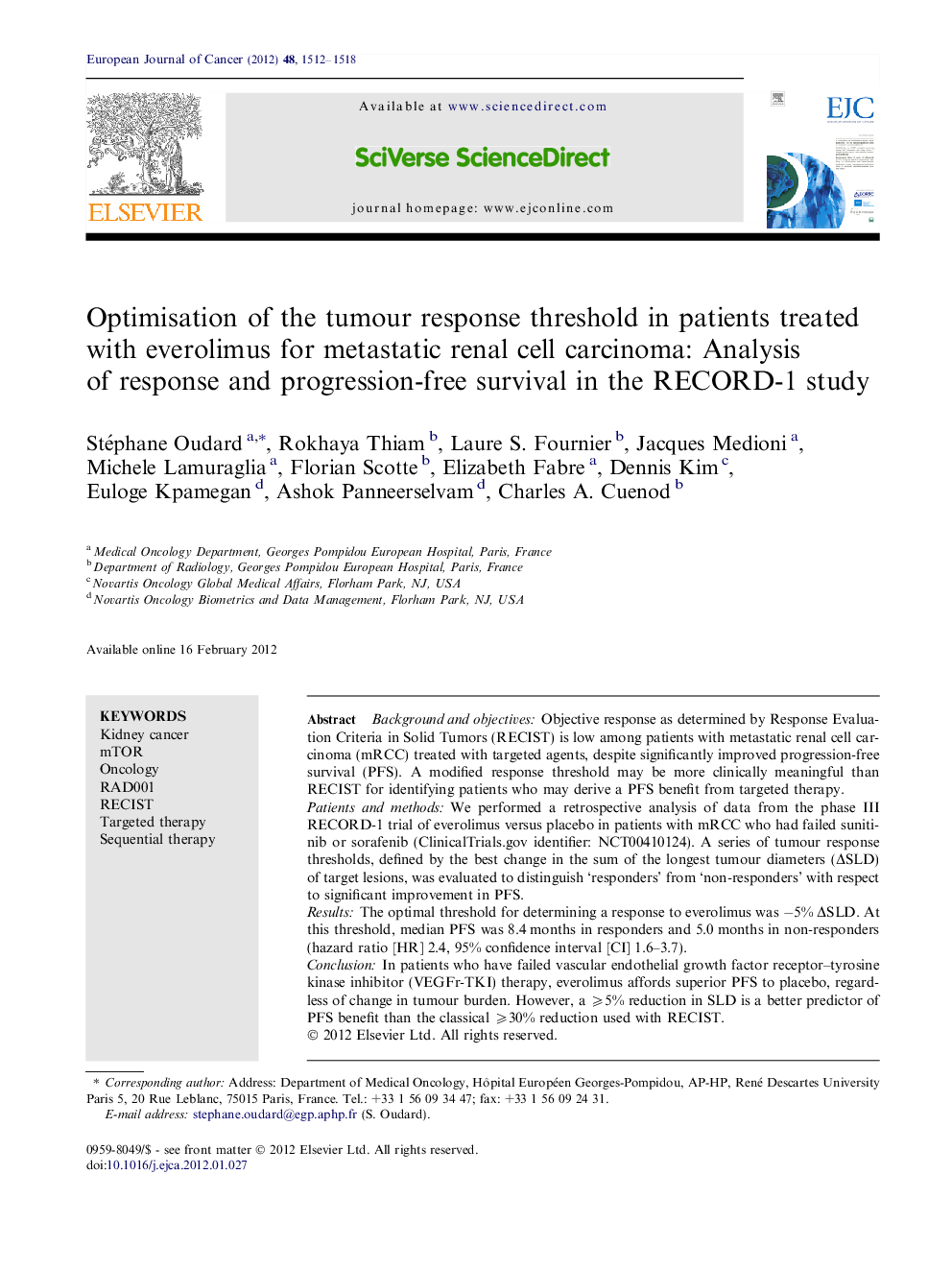| Article ID | Journal | Published Year | Pages | File Type |
|---|---|---|---|---|
| 2123650 | European Journal of Cancer | 2012 | 7 Pages |
Background and objectivesObjective response as determined by Response Evaluation Criteria in Solid Tumors (RECIST) is low among patients with metastatic renal cell carcinoma (mRCC) treated with targeted agents, despite significantly improved progression-free survival (PFS). A modified response threshold may be more clinically meaningful than RECIST for identifying patients who may derive a PFS benefit from targeted therapy.Patients and methodsWe performed a retrospective analysis of data from the phase III RECORD-1 trial of everolimus versus placebo in patients with mRCC who had failed sunitinib or sorafenib (ClinicalTrials.gov identifier: NCT00410124). A series of tumour response thresholds, defined by the best change in the sum of the longest tumour diameters (ÎSLD) of target lesions, was evaluated to distinguish 'responders' from 'non-responders' with respect to significant improvement in PFS.ResultsThe optimal threshold for determining a response to everolimus was â5% ÎSLD. At this threshold, median PFS was 8.4 months in responders and 5.0 months in non-responders (hazard ratio [HR] 2.4, 95% confidence interval [CI] 1.6-3.7).ConclusionIn patients who have failed vascular endothelial growth factor receptor-tyrosine kinase inhibitor (VEGFr-TKI) therapy, everolimus affords superior PFS to placebo, regardless of change in tumour burden. However, a ⩾5% reduction in SLD is a better predictor of PFS benefit than the classical ⩾30% reduction used with RECIST.
